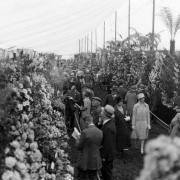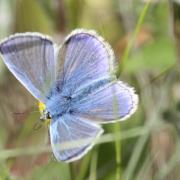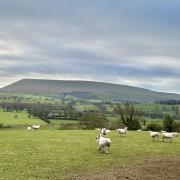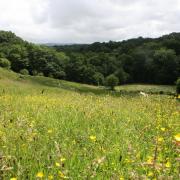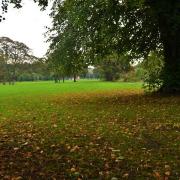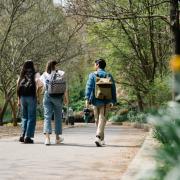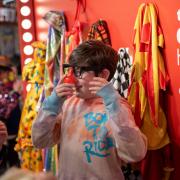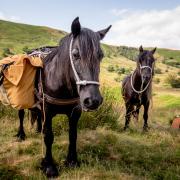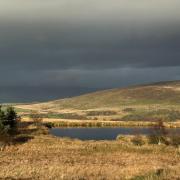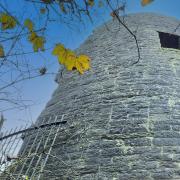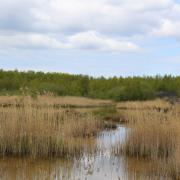An artist from Chorley has made a fine art of upcycling and has a growing reputation for her craft. Roger Borrell reports.

Many artists might balk at being dubbed ‘The Lancashire Womble’ but it’s a title that makes Lucy Wray burst into fits of laughter. The young mum from Chorley is a serious artist, but she doesn’t take herself too seriously. ‘After all, what I use is basically rubbish – it’s waste left behind from other industries,’ she admits.
While the ingredients that go into Lucy’s work might sound unpromising – old bits of plastic bag, material off-cuts and scrap paper to name just a small selection – the end results are hugely pleasing on the eye. So much so, that she is building up quite a following on the North West craft scene and was recently part of an exhibition at the Platform Gallery in Clitheroe.
Her hand-made brooches sell at craft fairs for as little as £12.50, original cards go for £6 and small framed works are £20. Even bigger pieces, like a striking image of a boxing hare, can be bought for under £200.
Understandably, the lower priced pieces are what keep her business, Thrift Design, ticking over rather than the bigger pictures which are universally admired but not always bought. ‘Unfortunately, you can’t buy food with compliments,’ reflects Lucy.

While she is no eco-warrior, she does care about the environment and the waste of resources, and while she accepts she’s an upcycler, she declares: ‘I’m not someone who slaps chalk paint on old cupboards or makes cufflinks from bottle tops.’ There is definite art to her craft.
It’s clear she has given much thought to what she does and why she does it, expressing the view that recycling isn’t always all it’s cracked up to be. ‘It’s a complicated issue, but some recycling of paper, for instance, means that by the time you have used bleach and machinery in the process, the emissions create a larger carbon footprint than cutting down trees from sustainably grown forestry.’
Lucy has a third way. ‘Best of all is to give existing materials a second life.’ Working as a community artist she regularly visited the local recycling centres to source materials for big creative projects and now, working from the converted garage of her home in Euxton, she continues to scavenge.
‘I’ll use single use plastic bags – the sort of things used for supermarket bread or frozen peas – and fuse them together to make pieces of art. I love experimenting and breaking rules. There is hardly a piece of equipment in my studio that I use for its intended purpose; I have a trouser press, which I use to fuse plastic and a soldering iron I use to cut fabric, among other things.’

She obtains out of season sample books from interior design shops and uses the material and paper, collects salvaged buttons and knows a handbag maker who gives her scraps of unused Harris Tweed. ‘It’s all perfectly good rubbish that would otherwise end up in landfill,’ says Lucy.
As well as creating art, she also gives something back, donating one of her squirrel images to the Scottish charity Trees for Life, which is rehoming the endangered species. She is also a big supporter of Just a Card, a campaign to encourage more people to buy hand-made greetings cards.
Lucy, a former pupil of Albany High who has a five-year-old son and is married to a financial advisor, trained at Manchester School of Art. Like many students, she discovered that going to college helped to develop her talent as an artist but it didn’t teach her how to make a living.
That’s how she ended up working as a sign-writer, mainly for pubs. She went on to be a senior member of the team in Blackburn creating community art programmes as a form of therapy.
‘Facilitating someone else’s creativity was great but there came I time when I wanted to do my own art,’ says Lucy. ‘I decided to go for it full time and now I’m part of the Lancashire ETSY team. I’m getting a lot of positive feedback.’
She doesn’t just make speculative pieces but also takes commissions. A recent job involved a portrait of a Labrador pet for a couple from Hong Kong.
Inevitably, much was upcycled – a combination of plastic and old sea charts. Is there anything that can’t be used? ‘Probably not,’ says Lucy.’ But you won’t see me rummaging around in skips. I just don’t have the time!’




